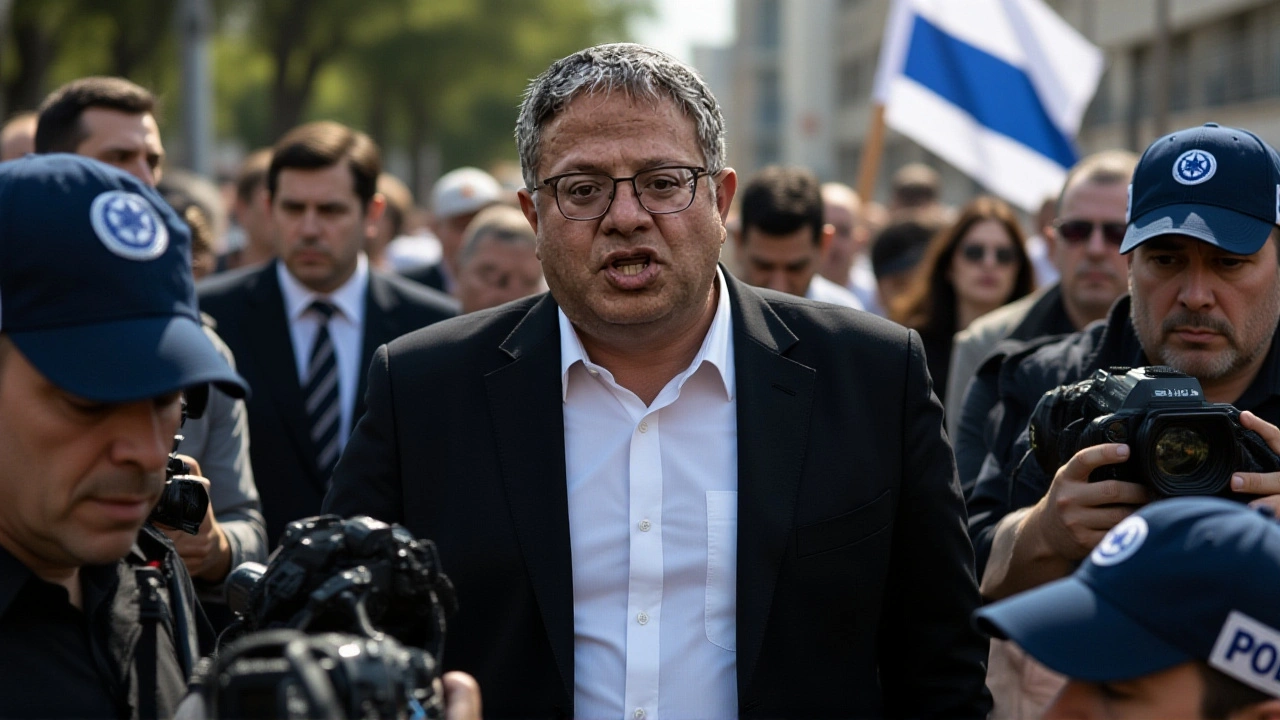A five‑nation coalition sanctions Israel's Itamar Ben‑Gvir and Bezalel Smotrich over West Bank violence, sparking U.S. criticism and raising stakes for the two‑state solution.
When talking about Itamar Ben‑Gvir, the name immediately pulls up a controversial Israeli politician known for his hard‑line nationalist rhetoric and frequent headlines. Itamar Ben‑Gvir, a member of the Knesset and leader of the Otzma Yehudit party, is often described as a representative of Israel’s far‑right wing. Also known by the Hebrew nickname meaning “the law‑giver,” he has built a reputation for pushing strict security measures, opposing judicial reforms, and demanding annexation of contested territories. His public profile rose sharply after his appointment as Israel’s Minister of National Security, a role that puts him at the center of the country’s defense and diplomatic decisions.
His presence in the Knesset, Israel’s single‑chamber parliament where he serves as an elected member gives him a direct voice in legislative debates. Otzma Yehudit, the far‑right party he heads, advocates for full Israeli sovereignty over the West Bank and strict anti‑Arab policies provides the political platform for his most radical proposals. In turn, Israeli politics, a complex system of coalition governments, security concerns, and diverse ideological groups shapes how his ideas are negotiated, often forcing coalition partners to balance far‑right pressure with international scrutiny. The broader Israeli‑Palestinian conflict, the decades‑long dispute over land, sovereignty, and national identity serves as the backdrop for nearly every policy Ben‑Gvir champions, from settlement expansion to security legislation. These entities create tight semantic links: Itamar Ben‑Gvir leads Otzma Yehudit; Otzma Yehudit influences Israeli politics; Israeli politics includes far‑right movements like Ben‑Gvir’s party; the Knesset provides the institutional arena for his legislative agenda; and the Israeli‑Palestinian conflict drives the debates that shape his public statements. Understanding these connections helps you see why a single figure can sway national discourse, affect coalition dynamics, and spark international reaction.
Below you’ll find a curated batch of recent stories that touch on Ben‑Gvir’s actions, statements, and the reactions they provoke—from policy shifts and diplomatic fallout to public protests and parliamentary battles. Whether you’re tracking his influence on security policy, trying to gauge the future of Israel’s right‑wing coalition, or simply curious about how a single politician can become a flashpoint in regional politics, the articles ahead give you the facts, analysis, and on‑the‑ground perspectives you need. Dive in to see how Ben‑Gvir’s agenda plays out across ministries, media headlines, and the everyday lives of Israelis and Palestinians alike.

A five‑nation coalition sanctions Israel's Itamar Ben‑Gvir and Bezalel Smotrich over West Bank violence, sparking U.S. criticism and raising stakes for the two‑state solution.